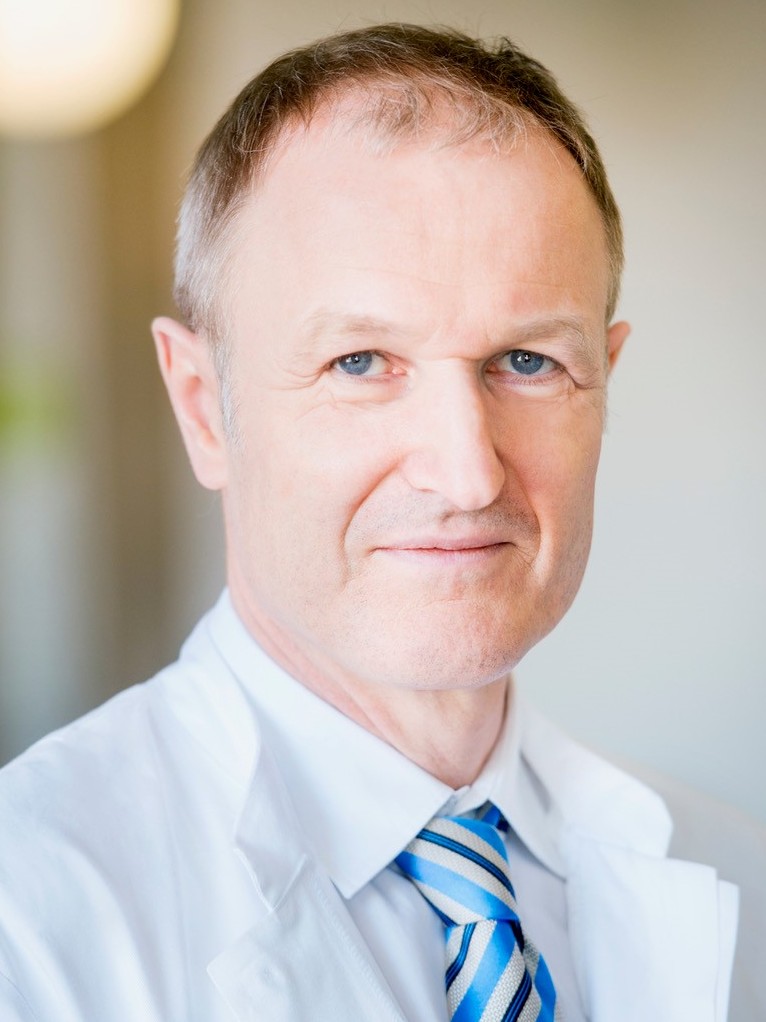The mitral valve functions as a valve between the left atrium and the left ventricle of our heart. In the case of mitral valve insufficiency, i.e., leakage of this valve, the blood flows back into the lung and back to the right ventricle. The tricuspid valve in the right side of the heart can also be affected in the process.
This is because the right ventricle must pump against the backlog of blood from the lungs; thus, there is pathological widening of the right ventricle. Consequently, the ring on which the tricuspid valve flaps are suspended is stretched so that the flaps can no longer close tightly. The tricuspid valve is the valve between the right atrium and the right ventricle. Blood thus flows back into the right ventricle. As a result, there is a backflow of “used”, deoxygenated blood into the body.
The guidelines state that severe tricuspid valve insufficiency should also be treated during the mitral valve correction or replacement surgery; however, there is uncertainty regarding whether it should be operated on if it is only mildly or moderately impaired. Prof. Dr. med. Volkmar Falk, Medical Director of the German Heart Center Berlin and Director of the Department of Cardiovascular Surgery at Charité - Universitätsmedizin Berlin, explains why: “Reconstruction of the mitral valve relieves pulmonary circulation and thus the right ventricle. This may mean that surgical treatment of tricuspid valve insufficiency is no longer required. Yet it may also be the case that this valve leakage progresses nevertheless. A second heart operation is then required, which is of course a strain on the patient.”
A new study is aiming to clarify whether it is better to operate on both valves concurrently, even if the tricuspid valve does not yet leak much. The guidelines for this patient group could then also be refined. The study “CTSN-TVR—DZHK14” will be conducted by the DZHK together with the US “Cardiothoracic Surgical Trials Network (CTSN)” and headed by Prof. Falk on the German side. Four hundred patients shall be included. In Germany, a total of 16 centers are participating in the study – 9 of which are DZHK centres. In the USA and Canada there are 20 participating centres.
The collaboration required a lot of groundwork: data security and authorship are only two of many points that needed clarifying. “However, it was worth the effort, because now we have a good foundation for further international collaboration,” says Prof. Falk.
In the USA, 105 patients have already been included. In Germany, the enrolment process has just started.
Study title:
Evaluating the benefit of concurrent tricuspid valve repair during mitral surgery CTSN-TVR— DZHK14
Principle investigator:
Prof. Dr. med. Volkmar Falk, German Heart Center Berlin, Department of Cardiothoracic and Vascular Surgery
Contact:
Christine Vollgraf, Public Relations Officer, German Centre for Cardiovascular Research (DZHK), phone: +49 30 3456 529 02, presse(at)dzhk.de


